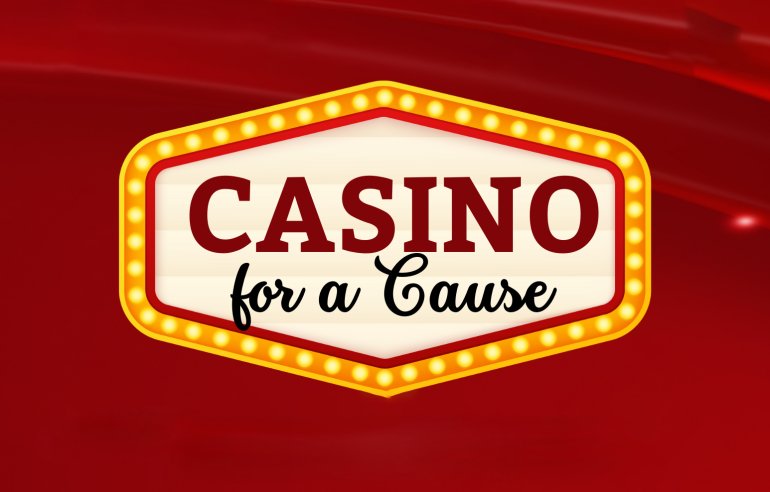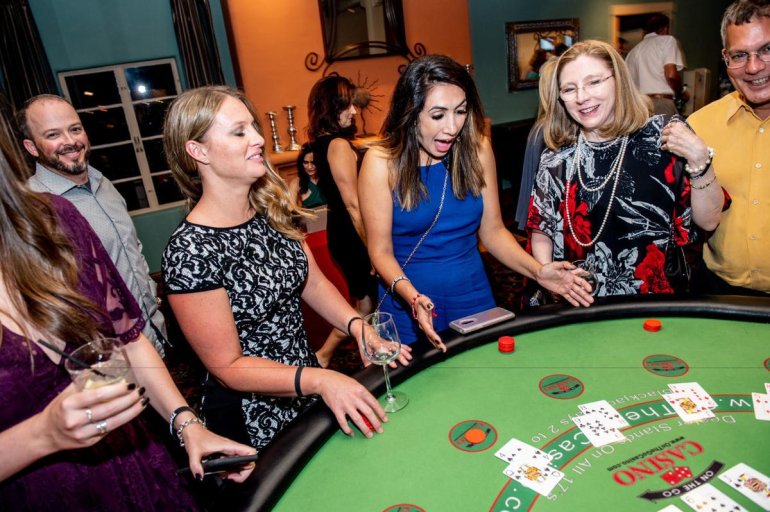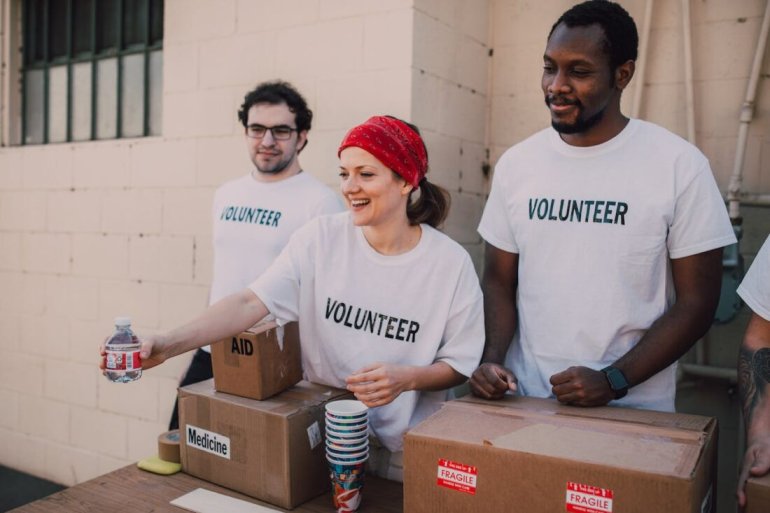
In 2023, the annual "Casino for a Cause" event in Las Vegas shattered records, raising over $5 million in a single night for local children's hospitals. Attendees enjoyed a night of blackjack, roulette, and poker while contributing to a noble cause. This event highlighted the potential of charitable gambling to generate substantial funds and showcased the community's willingness to engage in such initiatives for the greater good.
Charitable gambling, encompassing activities like raffles, bingo nights, casino-themed fundraisers, and lotteries, has become an increasingly popular strategy for nonprofits to raise funds. These events offer a unique blend of entertainment and philanthropy, attracting diverse participants and fostering community spirit. This article explores how nonprofits leverage games of chance to support their missions, the benefits and challenges they encounter, and the profound impact these efforts have on their causes and communities.
Overview of Charitable Gambling
Charitable gambling refers to the practice of conducting gambling activities with the primary aim of raising funds for nonprofit organizations or charitable causes. Unlike commercial gambling, where the proceeds go to private operators or shareholders, the profits from charitable gambling are directed toward philanthropic efforts.
Common types of charitable gambling include:
- Raffles: Participants purchase tickets to win prizes. The winners are typically drawn at random.
- Bingo Nights: Players purchase cards and mark off numbers as they are called out, with prizes awarded for completing specific patterns.
- Casino Nights: These events mimic a traditional casino environment with games such as blackjack, poker, roulette, and slot machines, often using play money or chips that can be converted into raffle tickets or prizes.
- Lotteries: Similar to raffles, participants buy tickets for a chance to win large cash prizes or other significant rewards, with the winning numbers drawn at random.
Historical Context
Gambling to support charitable causes is not new and has been employed for centuries across different cultures. One of the earliest recorded instances of charitable gambling dates back to the Han Dynasty in China, around 200 BCE, when keno games were used to fund large state projects such as the construction of the Great Wall.
Lotteries have a long history in Europe. Some of the earliest state-sponsored lotteries in the 15th and 16th centuries funded public works and charitable activities. For instance, the first recorded English lottery in 1569 raised funds to repair harbors and other infrastructure.
In the United States, charitable gambling gained prominence in the 20th century. During the Great Depression, churches and civic organizations began organizing bingo games to support their activities and relieve those in need. The success of these early efforts laid the groundwork for the broader acceptance and regulation of charitable gambling.
Today, charitable gambling is a well-established and regulated means of fundraising, governed by specific laws and regulations to ensure fairness and transparency. Nonprofits leverage these games of chance to raise significant funds and engage the community, build awareness for their causes, and create enjoyable experiences for supporters.

Benefits for Nonprofits
Let’s overview the major advantages of charitable gambling.
Fundraising Potential
Charitable gambling offers a powerful means of generating significant funds, often surpassing traditional fundraising methods. Events like raffles, bingo nights, and casino-themed fundraisers can attract large numbers of participants willing to spend money for both the chance to win prizes and to support a worthy cause. The allure of potential rewards, coupled with the entertainment value, drives higher participation and spending.
For example, a single well-organized casino night can raise tens of thousands of dollars in just a few hours, which might take weeks or months to achieve through more conventional approaches like bake sales or car washes. This efficiency in fundraising allows nonprofits to focus their resources on their primary mission rather than on prolonged fundraising campaigns.
Community Engagement
Charitable gambling events are more than just fundraising opportunities; they are community builders. These events unite people in a fun and social setting, fostering a sense of community and shared purpose. Participants often include people who might not typically engage with the nonprofit’s cause, broadening the organization’s reach.
The interactive nature of games such as bingo and casino nights encourages mingling and networking, creating a lively atmosphere that promotes camaraderie and a stronger connection to the cause. Additionally, these events allow nonprofits to educate attendees about their mission and the impact of their work, thereby increasing community awareness and support.
Public Relations
Successful charitable gambling events can generate significant positive publicity and enhance a nonprofit’s reputation. Media coverage of these events, whether through local newspapers, radio stations, or social media, highlights the organization’s innovative and engaging approach to fundraising. Positive press boosts the nonprofit's visibility and positions it as a dynamic and proactive entity within the community.
Furthermore, the goodwill generated by hosting enjoyable and impactful events can increase supporters' and donors' trust and loyalty. This enhanced reputation can have long-lasting benefits, including increased volunteerism, substantial donations, and overall support for the nonprofit’s activities.
In summary, charitable gambling presents nonprofits with substantial fundraising potential, fosters deeper community engagement, and generates positive public relations, which are crucial for sustaining and advancing their missions.
Legal and Regulatory Considerations
Now, here are a couple of words about the legal aspects.
Licensing and Permits
Nonprofits must navigate licensing and permitting requirements to conduct charitable gambling events legally. These regulations ensure that gambling activities are conducted fairly and transparently and that proceeds are used appropriately.
The process typically involves:
- Application for Licenses: Nonprofits must apply for specific licenses to hold gambling events. This often includes detailing the type of event, the games to be played, and how the proceeds will be used. Applications are usually submitted to a state or local gaming control board or regulatory body.
- Background Checks: Regulatory authorities may require background checks on key individuals involved in organizing the event to ensure there are no criminal records or conflicts of interest.
- Permit Fees: Nonprofits may need to pay fees associated with obtaining permits. These fees can vary depending on the event's jurisdiction and scale.
- Training and Certification: Some jurisdictions require that event organizers undergo training to understand the legalities and ethical considerations of running gambling activities.
Compliance and Reporting
Once licensed, nonprofits must adhere to strict compliance and reporting standards to maintain their legal standing and ensure the event's integrity.
Key aspects of compliance include:
- Accurate Financial Reporting: Nonprofits must keep meticulous records of all financial transactions related to the event. This includes tracking ticket sales, prize distributions, and expenses.
- Use of Proceeds: Organizations must document how the funds raised are allocated and used, ensuring they are directed towards the stated charitable purposes.
- Regular Audits: Some jurisdictions require regular checks by independent auditors to verify that funds are handled properly and that the organization complies with all regulations.
- Transparency: Maintaining transparency with participants and regulatory bodies is crucial. This involves clear communication about the odds of winning, the allocation of proceeds, and the rules of the games.
Variations by Jurisdiction
Regulations governing charitable gambling can vary significantly between states and countries, reflecting differing legal frameworks and cultural attitudes towards gambling.
Essential variations include:
- Permissible Activities: What constitutes legal charitable gambling can differ widely. For example, some states may allow casino nights while others restrict activities to raffles and bingo.
- Tax Implications: The tax treatment of proceeds from charitable gambling can vary. Some jurisdictions may exempt these funds from taxation, while others require that a portion be paid as tax.
- Prize Limits: Regulations may limit the value of prizes that can be offered. High-value prizes might require additional permits or be subject to stricter regulations.
- Frequency of Events: Some areas limit the number of annual gambling events a nonprofit can hold to prevent over-reliance on gambling as a fundraising method.
- Advertising Restrictions: There can be rules about how and where charitable gambling events can be advertised to ensure that they are not promoted in a way that encourages irresponsible gambling.
Navigating these legal and regulatory considerations is essential for nonprofits to run successful and compliant charitable gambling events. By understanding and adhering to these requirements, organizations can ensure their activities are lawful and effective in supporting their philanthropic missions.

Planning a Charitable Gambling Event
Do you want to organize such an event? Consider the following tips.
Initial Steps
Planning a successful charitable gambling event begins with careful preparation and clear objectives. The first steps are:
- Defining Goals: Establish clear goals for the event. Determine the amount of money you aim to raise, the specific charitable purpose the funds will support, and any secondary goals, such as increasing community awareness or engagement.
- Choosing a Game: Select the gambling activity that fits your audience and goals best. Consider options like raffles, bingo, casino nights, or lotteries. Ensure the chosen game aligns with legal regulations and will likely attract participants.
- Setting a Budget: Develop a detailed budget that includes all potential expenses and revenue streams. Consider costs such as venue rental, permits, marketing, equipment, prizes, and refreshments. Plan for contingencies to avoid financial shortfalls.
Marketing and Promotion
Effective marketing is crucial to maximize attendance and participation. Strategies incorporate:
- Target Audience: Identify and understand your target audience. Tailor your marketing efforts to reach potential participants likely to support the cause and enjoy the gambling activities.
- Promotion Channels: Use a mix of promotion channels to reach a broad audience. This can include social media, email newsletters, local newspapers, radio, community bulletin boards, and partnerships with local businesses.
- Engaging Content: Create engaging and informative content to generate excitement. Highlight the cause, the fun aspects of the event, the prizes, and how participants’ contributions will make a difference.
- Early Bird Incentives: Offer early bird discounts or special incentives for those who purchase tickets or register early. This can help boost initial interest and commitment.
Venue and Logistics
Choosing the right venue and managing logistics are key to the event’s success. Key considerations include:
- Venue Selection: Choose a venue that is accessible, spacious, and suitable for the planned gambling activities. Ensure it has necessary amenities like restrooms, parking, and catering facilities.
- Setup and Layout: Plan the setup and layout of the event space. Arrange gaming tables, seating, and prize areas to ensure smooth flow and ease of movement. Consider the needs of different games and the comfort of participants.
- Permits and Equipment: Secure all necessary permits well in advance. Arrange for the rental or purchase of gaming equipment, decorations, and other supplies. Ensure everything complies with legal requirements.
- Logistics Management: Develop a detailed logistics plan, including timelines for setup and teardown, volunteer assignments, and contingency plans for potential issues such as equipment failure or unexpected weather conditions.
Volunteer Management
Volunteers are essential to the success of charitable gambling events. Effective recruitment and management strategies are:
- Recruitment: Start recruiting volunteers early. Reach out to supporters, community groups, and local businesses. Communicate the roles and responsibilities and the benefits of volunteering.
- Training: Provide thorough training for all volunteers. Ensure they understand the rules of the games, the event schedule, and their specific tasks. Training sessions can also cover customer service and handling any issues that arise.
- Role Assignment: Assign roles based on volunteers’ skills and interests. Roles include ticket sales, game management, setup and teardown, marketing, and guest assistance. Ensure there is adequate coverage for all areas.
- Recognition and Appreciation: Show appreciation for your volunteers’ efforts by providing refreshments during the event, acknowledging their contributions publicly, and considering small tokens of thanks, such as certificates or gift cards.
By following these steps, nonprofits can effectively plan and execute charitable gambling events that are well-organized, compliant, and successful in achieving their fundraising goals.

Maximizing Revenue
Here are several helpful tips on how you can increase your income.
Ticket Sales and Pricing Strategies
Effective ticket pricing and sales strategies are crucial to maximizing revenue from a charitable gambling event. Here are some tips:
- Setting the Right Price: Determine ticket prices based on your target audience, event costs, and fundraising goals. Research similar events to gauge what attendees are willing to pay. Ensure the price is attractive enough to encourage participation while covering costs and generating profit.
- Tiered Pricing: Offer tiered pricing to cater to different budget levels. For example, provide standard tickets, VIP tickets with extra benefits, and group discounts. This strategy can appeal to a broader audience and increase overall sales.
- Early Bird Discounts: Encourage early purchases by offering discounted prices for those who buy tickets in advance. This can help gauge interest and secure funds early in the planning process.
- Bundling Packages: Create bundles that include tickets, raffle entries, and additional perks. Bundling can increase the perceived value and encourage attendees to spend more.
- Online Sales: Utilize online ticketing platforms to make purchasing convenient. Promote online sales through social media and email campaigns to reach a wider audience.
- On-Site Sales: Offer ticket sales at the door for last-minute attendees. Ensure you have a streamlined process to handle on-site transactions efficiently.
Sponsorships and Donations
Securing sponsorships and additional donations can significantly boost the revenue of a charitable gambling event:
- Identify Potential Sponsors: Look for local businesses and organizations that align with your cause. Create a list of potential sponsors and tailor your pitch to highlight the benefits of supporting your event.
- Sponsorship Packages: Develop various sponsorship packages that offer different levels of exposure and benefits. For example, packages can include logo placement on marketing materials, mentions in event promotions, and VIP tickets.
- Corporate Sponsorships: Approach larger corporations for substantial sponsorship deals. Highlight how their support will positively impact the community and align with their corporate social responsibility goals.
- In-Kind Donations: Solicit in-kind donations such as raffle prizes, auction items, and event supplies. These donations can reduce costs and increase the event's appeal.
- Matching Donations: Partner with businesses willing to match donations made during the event. This can incentivize attendees to give more, knowing their contributions will be doubled.
- Recognition and Acknowledgment: Ensure sponsors and donors are recognized for their contributions. Acknowledge them during the event, in promotional materials, and follow-up communications.
Ancillary Revenue Streams
In addition to ticket sales and sponsorships, consider these ancillary revenue streams to maximize your event’s earnings:
- Food and Drink Sales: Offer a variety of food and beverages for purchase during the event. Partner with local restaurants or caterers to provide quality options. Alcohol sales, if permitted, can be particularly lucrative.
- Merchandise: Sell branded merchandise such as t-shirts, hats, and other memorabilia. This not only generates additional revenue but also promotes your organization.
- Raffles and Lotteries: Organize raffles or lotteries with appealing prizes. Sell tickets separately or include them in ticket bundles to encourage participation.
- Silent and Live Auctions: Host auctions featuring donated items or experiences. Silent auctions can run throughout the event, while live auctions can be scheduled as a highlight, creating excitement and competition among attendees.
- Games and Activities: Set up additional games or activities that attendees can participate in for a fee. Examples include a photo booth, a spin-the-wheel game, or a mini-casino with various table games.
- Fund-a-Need Segment: Incorporate a direct appeal segment into the event where attendees can make pledges or donations for a highlighted need or project.
By implementing these strategies, nonprofits can effectively maximize revenue from their charitable gambling events, ensuring greater support for their causes and enhancing the overall success of their fundraising efforts.
Ensuring Ethical Practices
When conducting such events, you should remember about ethics.
Transparency and Accountability
Transparency and accountability are fundamental to maintaining the trust and support of donors and participants in charitable gambling events. Key practices include:
- Detailed Financial Reporting: Keep accurate and detailed records of all financial transactions, including ticket sales, sponsorships, donations, prize expenditures, and overall event costs. Regularly update stakeholders on the event's financial status.
- Public Disclosure: Make financial reports available, including how funds are allocated and used. Transparency in how the proceeds support the nonprofit’s mission helps build trust and credibility.
- Regular Audits: Independent auditors conduct regular audits to ensure the accuracy of financial reports and adherence to regulations. This practice identifies potential issues and reassures donors and regulatory bodies of the organization’s integrity.
- Clear Communication: Communicate the event's purpose, how the funds will be used, and the impact on the cause. Provide updates on the progress and outcomes achieved with the raised funds.
- Donor Acknowledgement: Publicly recognize and thank donors and inform them about the event's success and how their contributions make a difference.
Preventing Problem Gambling
Ensuring responsible gambling practices is crucial to protect participants and uphold the ethical standards of the nonprofit. Measures include:
- Education and Awareness: Provide information on responsible gambling practices. Include brochures or displays at the event that outline the signs of problem gambling and tips for maintaining control.
- Helpline and Resources: Provide information about helplines and resources for problem gamblers. Prominently display contact information for local or national gambling support organizations at the event.
- Self-Exclusion Options: Implement self-exclusion policies that allow individuals to voluntarily exclude themselves from gambling activities if they feel at risk.
- Training for Staff and Volunteers: Train staff and volunteers to recognize signs of problem gambling and how to respond appropriately. Ensure they are familiar with the resources available to help those in need.
- Limitations and Controls: Set reasonable limits on participants' spending. Avoid high-pressure sales tactics and ensure that all gambling activities are conducted fairly and transparently.
Fairness and Integrity
Maintaining fairness and integrity in all aspects of the gambling event ensures participants have a positive and trustful experience. Key practices include:
- Fair Game Conduct: Ensure that all games are conducted fairly and according to established rules. Use standardized equipment and ensure that all participants have an equal chance of winning.
- Impartial Prize Draws: Use impartial methods for prize draws and winner selection. For example, use automated random number generators for lotteries or independent third parties to oversee raffle draws.
- Clear Rules and Regulations: Provide clear and accessible rules for all games and activities. Ensure that participants understand the rules before engaging in the games.
- Audit Trails: Maintain audit trails for all gaming activities. Document how winners are selected and prizes distributed, ensuring that these records are available for review if needed.
- Conflict of Interest Policies: Implement policies to prevent conflicts of interest. Ensure that staff, volunteers, and their families are not eligible to participate in the gambling activities to avoid any appearance of bias or impropriety.
By adhering to these ethical practices, nonprofits can ensure that their charitable gambling events are conducted responsibly, fairly, and transparently. This protects participants, strengthens the organization’s reputation, and fosters long-term trust and support.

Future Trends in Charitable Gambling
Like any other activity, this one employs recent tendencies and up-to-date technologies.
Online Charitable Gambling
The rise of online platforms for charitable gambling is transforming how nonprofits can engage supporters and raise funds. Key benefits and trends include:
- Accessibility and Convenience: Online charitable gambling platforms make it easy for supporters to participate from anywhere, increasing the potential reach and convenience. This accessibility can attract a larger and more diverse audience who may not attend in-person events.
- Lower Overhead Costs: Hosting gambling events online can significantly reduce overhead costs associated with venue rental, staffing, and physical setup. This allows more funds to be directed toward the charitable cause.
- Real-Time Engagement: Online platforms offer real-time interaction through live chats, video streaming, and instant updates. This engagement can enhance the experience for participants, making them feel more connected to the event and the cause.
- Broader Reach: Online events can attract participants from different geographic locations, expanding the nonprofit’s donor base. Social media and digital marketing can further amplify reach and participation.
- Data and Analytics: Digital platforms provide valuable participant behavior, preferences, and demographics data. Nonprofits can use this data to tailor future events, improve engagement strategies, and measure the success of their efforts.
Innovative Game Formats
Emerging game formats are introducing new and exciting ways to attract diverse demographics to charitable gambling events:
- Hybrid Events: Combining in-person and online elements, hybrid events can cater to a wider audience. For example, an in-person casino night could also feature an online poker tournament, allowing remote supporters to join the fun.
- Interactive and Skill-Based Games: Incorporating interactive and skill-based games can appeal to younger demographics who prefer more engaging and dynamic experiences. Games like trivia contests, esports tournaments, and virtual escape rooms can attract new participants.
- Themed Events: Themed gambling events, such as "Casino Royale" nights or "Vegas in the Park" festivals, create immersive experiences that can draw in different demographic groups and increase participation.
- Mobile Gaming: Developing mobile apps or integrating with existing gaming platforms allows participants to engage in charitable gambling on their smartphones. Mobile-friendly formats increase convenience and accessibility, especially for younger, tech-savvy audiences.
- Gamification: Adding gamification elements, such as leaderboards, achievements, and rewards, can make the experience more engaging and competitive. Gamification can drive higher participation and repeat attendance.
Technological Advancements
Technology is crucial in enhancing the planning and execution of charitable gambling events. Key advancements include:
- Virtual Reality (VR) and Augmented Reality (AR): VR and AR technologies can create immersive gambling experiences that mimic real-world casinos. These technologies can attract participants looking for unique and cutting-edge entertainment options.
- Blockchain and Cryptocurrency: Integrating blockchain technology can enhance transaction transparency and security, ensuring funds are managed ethically. Accepting cryptocurrency donations can also appeal to a tech-savvy demographic and potentially increase donations.
- AI and Machine Learning: AI can help personalize the participant experience by recommending games and activities based on individual preferences. Machine learning algorithms can also optimize marketing strategies by analyzing participant data.
- Live Streaming: Utilizing live streaming technology allows nonprofits to broadcast their events in real-time, engaging a global audience. Live streams can include interactive elements such as Q&A sessions, live draws, and instant winner announcements.
- Enhanced Payment Solutions: Modern payment solutions, including digital wallets, contactless payments, and mobile payment apps, make transactions more convenient and secure. Streamlining payment processes can improve participant satisfaction and increase revenue.
By embracing these future trends, nonprofits can enhance their charitable gambling events, attract new supporters, and maximize their fundraising potential in innovative and engaging ways.
Conclusion
Charitable gambling offers a unique and effective way for nonprofits to raise funds, engage the community, and enhance their public image. By understanding the various types of charitable gambling, from raffles and bingo nights to casino-themed events, nonprofits can leverage these activities to achieve significant fundraising goals. The benefits are manifold, including increased community involvement and positive publicity. However, navigating the legal and regulatory landscape carefully is essential, ensuring compliance with licensing, reporting, and ethical standards.
Charitable gambling events provide an exciting and impactful way to support causes you care about. Whether you are part of a nonprofit organization looking to organize an event or an individual seeking to participate, your involvement can make a significant difference. Consider hosting or attending a charitable gambling event to contribute to meaningful causes, foster community spirit, and enjoy a fun, engaging experience. Your support can help drive positive change and make a lasting impact on the communities and missions you care about most.
















































